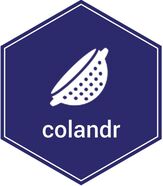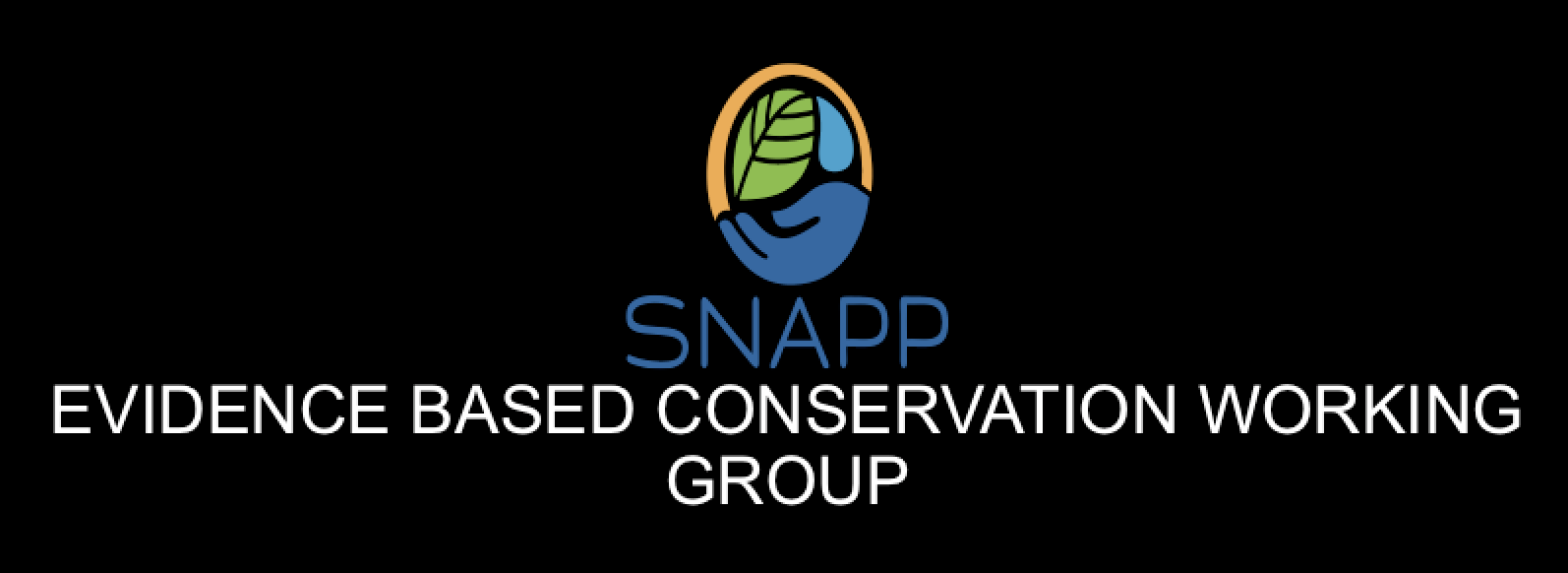Bloomberg Data for Good Exchange
9/16/2018
DataKind shared a posted on colandr at D4GX this weekend. In the Data for Good 2025 workshop, continuous themes were open source / open access and democratizing access to data and data synthesis. Colandr is a tool that plays in this space and was designed for to make access to evidence easier for decision-makers. Bold challenge - "let's not use tools that can't be explained at Thanksgiving dinner!" Can colandr be explained that way?
0 Comments
Webinar recap and materials
6/6/2018
Thanks to everyone who attended our webinar today! We had a ton of great questions and we appreciate you being our test group for our first webinar training. :) You can view the webinar recording here or download it below. We'll be posting a longer demo on the data extraction phase in the coming days, so look for a post on that in this updates. In the meantime, we're sharing the webinar and slides from today's session. Please reach out on twitter or by email with follow-up questions! cheers, Caitlin & Sam
We will be hosting a webinar on June 6 at 10 AM EST providing hands-on training for Colandr and a Q&A session.
Please RSVP for this event at https://www.eventbrite.com/e/colandr-webinar-tickets-46203347456 DataKind talk at CEE 2018
4/20/2018
We were able to update our ICCB talk to share with evidence synthesis experts at CEE 2018. Key takeaways were the value of computer-assisted rather than computer-dictated ML/AI tools, the ease of colandr, and the process to build and maintain an open source/open access tool. Check out our slides!
An article detailing Colandr's functionalities and design was published last week in Conservation Biology. If you use Colandr in your work, please cite it as the following:
Cheng SH, Augustin C, Bethel A, Gill D, Anzaroot S, Brun J, DeWilde B, Minnich RC, Garside R, Masuda YJ, Miller DC, Wilkie D, Wongbusarakum S, McKinnon MC. 2018. Using machine learning to advance synthesis and use of conservation and environmental evidence. Conservation Biology doi:10.1111/cobi.13117 Press release for Colandr is live
7/28/2017
The National Center for Ecological Analysis and Synthesis (NCEAS) which houses the Science for Nature and People Partnership (SNAPP) publishes a press release on Colandr's launch.
Read here ICCB slides are live
7/28/2017
It was great to share the Colandr launch with a packed house this week at ICCB 2017. Thanks for all the conversation on Twitter, and thanks for visiting the community! In the past two days, we hit over 500 page views. We hope you join us in the Google + community to talk Colandr and share your experiences.
We've posted the slides from ICCB 2017 and hope to hear from you soon! Colandr is an example of the many exciting developments in applying technological solutions to improving the search and use for evidence for decision-making.
If you are interested in learning more, contributing, or participating in a research network on the intersection of evidence synthesis and technology methods, please visit the website at www.evidence-technology.weebly.com and/or contact Samantha Cheng ([email protected]) or Christian Kohl ([email protected]) We need your input!
7/23/2017
Colandr users, evidence synthesizers, decision-makers... we need your thoughts!
Where do you think we need more evidence to support links between conservation actions and human well-being outcomes? https://www.surveymonkey.com/r/evidenceneeds ICCB 2017
7/23/2017
Several members of the SNAPP working group have landed in Cartagena, Colombia for ICCB 2017 this week. We'd love to connect with you at one of these talks! Both Sam and Caitlin will be discussing data techniques in evidence synthesis. Sam will be focusing on the Data Portal and Caitlin will be talking about Colandr.
Tuesday, 7/25 Sala 304 14:30-16:00 Capacity gaps hinder the performance of marine protected areas globally David Gill, Conservation International/George Mason University Wednesday, 7/26 Secretaría General 11:30-13:00Impact forecasting Predicting the likely impacts of conservation interventions Louise Glew, World Wildlife Fund; Andrew Fayram, World Wildlife Fund; Shauna Mahajan, World Wildlife Fund; Rebecca Snyder, World Wildlife Fund; Martha Stevenson, World Wildlife Fund Coding our way to evidence-based decision making: The role of data visualization Samantha Cheng, National Center for Ecological Analysis & Synthesis; Caitlin Augustin, DataKind; Julien Brun, National Center for Ecological Analysis & Synthesis; Neal Haddaway, MISTRA EviEM; Madeleine McKinnon, Vulcan, Inc.; David Wilkie, Wildlife Conservation Society Wednesday, 7/26 Sala 302 11:30-13:00 Opportunities and Risks for Conservation in the Millennial Generation Yuta Masuda, The Nature Conservancy; Sheila Reddy, The Nature Conservancy Wednesday, 7/26 Sala 301 11:30-13:00 Finding the needles in the evidence haystack: Smart sorting for conservation decision-making Caitlin Augustin, DataKind, Abess Center for Ecosystem Science and Policy,University of Miami; Sam Anzaroot, DataKind; Samantha Cheng, National Center for Ecological Analysis & Synthesis; Burton DeWilde, DataKind, ChartBeat; Madeleine McKinnon, Vulcan, Inc.; Robert Minnich, DataKind, Columbia University; David Wilkie, Wildlife Conservation Society Thursday, 7/27 Barahona 2 11:30-13:00 The land tenure gap and its in uence on socio- ecological conditions Yuta Masuda, The Nature Conservancy; Margaret Holland, University of Maryland, Baltimore County (UMBC); Allison Kelly, University of Washington Thursday, 7/27 Secretaría General 14:30-16:00 Predictive Proxy Indicators to Assess the Long- Term Impacts of Forest Conservation Funding Daniel Miller (University of Illinois); Pushpendra Rana (University of Illinois) Thursday, 7/27 Barahona 3 14:30-16:00 How can global evidence be used to make local conservation decisions? William Sutherland, University of Cambridge |
|||||||||||||||||||||||||||||||


